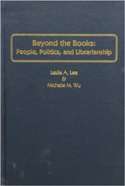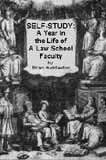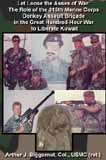(I.E., "The Article that was Never to be Published")
Over the summer, I worked on an article for American Libraries magazine. My "pitch" was basically "who does research for presidential campaigns?" and the editor at A.L. liked the idea. A quick literature search confirmed that nothing - as far as I found - had been written on this. The hook for the article would be a scene from the 1992 documentary "The War Room" and if I could get a brief phone interview with someone in each campaign who did that sort of work, it would be a decent article.
But both campaigns blew me off, preferring to only deal with more "mainstream" and "serious" media outlets like Blender magazine.
So, with three weeks until the election, here is the article I WOULD have written (well, a lightly-polished draft of it). Everything in brackets is my notes, possible text, and where I had reserved places for the quotes I never got.
_____
The Research and Information Needs of Presidential Campaigns
Many librarians are used to high-pressure research situations where information has to be found quickly and accurately, with no excuses allowed. Few if any settings are more high-pressure than a presidential campaign in the final months of an election. Saying “I couldn’t find it” or “I’ll finish this tomorrow” is not an option in the world of twenty-four hour news coverage where every fact and claim is checked by reporters and double-checked by a legion of amateur pundits in the blogosphere.
The 1992 documentary “The War Room” is a detailed look into Bill Clinton’s 1992 presidential campaign. Sixteen years later, it is still the best “inside the crucible” documentary about a presidential campaign ever made. For librarians who are familiar with it, one scene may stand out. At about the thirty-three minutes point, James Carville and the staff of the titular war room are watching the broadcast of George Bush the First’s acceptance speech at the 1992 republication presidential convention. The camera is close on Carville and as Bush attempts to rebut Clinton’s critique of the 91-92 recession you can tell that Carville’s mental wheels are spinning around at full speed. Carville had made “It’s the economy, stupid” one of the campaign’s internal mottos and, knowing the fiscal concerns of voters in the slumping economy, he turns and talks to someone off screen in his lilting cajun drawal, “Liz, I want to know if I can say this is the first time an incumbent president has given an acceptance speech and not mentioned his economic record.” The camera pans to a young staff member - presumably Liz - who nods and confidently heads off to answer this question. [WATCH THE SCENE HERE.]
Yes, it’s a reference question in the middle of the 1992 presidential campaign. If you listen to the speeches of the current two candidates for president, they are full of detailed facts and claims and so, obviously, they must have people whose job it is to conduct research, provide these facts, and double-check the assertions of their opponents. But who are they? How do they fit into the campaign organization? And how did Liz tackle that assignment during the 1992 campaign?
For the first time in American history, both major party nominees are current members of the Senate. As members of congress, they have access to the staff and facilities of the Library of Congress for conducting research in their capacity as Senators. But Janine D’Addario of the LOC’s Congressional Research Service confirmed that Congress has internal guidelines governing members’ use of facilities and services for campaigns; just as Senators and Representatives can’t used their offices for campaign purposes, they can’t use the Library of Congress for research related to their campaigns. [JANINE WAS THE ONLY PERSON TO RETURN MY CALLS; THANKS, JANINE!!!]
So how do presidential campaigns conduct research? I had two opposing visions in my head. Maybe the campaigns actually had skilled information professionals, maybe even - gasp - librarians with degrees and everything - who were masters of their domain and wielded resources both digital and traditional with amazing dexterity under immense daily pressure. Or maybe they only have low-level interns with Google and Wikipedia book-marked on their laptops. I set out to find out which vision was the closest to the truth.
[INSERT GREAT QUOTE FROM ONE CAMPAIGN HERE; DESCRIBE SOURCE’S POSITION IN CAMPAIGN, ETC.] So it turned out that they actually do have professional information jocks on the [OBAMA/MCCAIN] campaign staff. [DISCUSS HOW THIS CAMPAIGN INTEGRATED INFORMATION RESEARCH WITH THE OTHER COMPONENTS OF THE CAMPAIGN.] [ANOTHER QUOTE, MAYBE.] [MORE DISCUSSION, ETC., ETC.]
[ALTERNATELY:]
[INSERT NOT-SO-GREAT QUOTE FROM ONE CAMPAIGN HERE] I was disheartened. It sounded like my fear of junior flunkies with laptops was not far from the truth. But then I asked [WHOEVER] how comfortable they were with assertions like [INSERT EXAMPLE OF SOME STATISTIC OR FACT IN RECENT CANDIDATE SPEECH.] [FOLLOW-UP WITH ANOTHER DISMAL QUOTE.] With all the phone calls and follow-ups, I had started to feel like a reporter with a hot lead. Research-gate? Will the election of the next leader of the free world depend on sound-bites researched by [WHOEVER, WHATEVER, ETC., ETC., ETC.]
[Was the [OTHER CANDIDATE]’s campaign organized for research just as effectively?] OR [Maybe things were better at the [OTHER CANDIDATE]’s campaign.] [DISCUSS OTHER CAMPAIGN’S ORGANIZATION AND HOW ITS SET UP FOR RESEARCH, COMPARE AND CONTRAST, MORE QUOTES, ETC., ETC., ETC.]
[WRAP UP MIDDLE SECTION ON CURRENT CAMPAIGN, EITHER RELIEVED THEY TAKE RESEARCH AND FACT-CHECKING SERIOUSLY OR DISMAYED AT THE HALF-ASSED JOB THEY DO.]
So what about James Carville, the 1992 campaign, and Bush Senior’s non-mentioning of his economic record during his acceptance speech? The Clinton campaign apparently never used that iota of data and regardless of the answer to Carville’s “War Room” query, Bush senior lost the election. But what was the answer? I had to find out.
[I TRIED TO CONTACT CARVILLE AND “LIZ” FROM THAT SCENE IN THE WAR ROOM; SHE WORKS FOR NBC NOW AND HE IS ALL OVER CNN THIS ELECTION SEASON, BUT WHEN THE CANDIDATES WOULDN’T GET BACK TO ME I STOPPED PESTERING THEM FOR A COMMENT. BUT I COULD HAVE MADE THE ARTICLE WORK WITHOUT THEIR INPUT IF ONLY I HAD SOMEONE FROM EACH CAMPAIGN DEIGN TO SPEAK WITH ME. EVEN A BRIEF E-MAIL EXCHANGE WOULD HAVE BEEN FINE!!!]
Since there were probably more important things to work on, Carville may have never received an answer. And if he did, its clear why it was never used in the campaign. Of the 40 previous chief executive before Bush the First, 35 of them ran for re-election (FDR doing so three times). But acceptance speeches presented at a party’s nominating convention are a modern innovation in the political process. As late as 1932, Herbert Hoover did not even attend the election that re-nominated him as the Republican candidate. He was notified of his nomination by telegraph and replied, presumably in the same manner, with a brief, two page message.
In “The War Room” Carville specifically asked about acceptance speeches. Part of being a good reference librarian is understanding why a question is being asked. Carville obviously hoped that the history of presidential nominations would enable Bill Clinton to say something like “My opponent was the first president to accept his party’s nomination without mentioning his economic record in his acceptance speech”. Perhaps Liz’s research led to this realization that only a minority of presidents have actually made acceptance speeches at their party’s convention. Then the strength of the potential claim falls apart under a mound of clarifications - the “modern nominating process”, “modern convention acceptance speeches” or “of those presidents who actually made speeches,” etc., etc. None of those have quite as much rhetorical heft.
Since I am not a reference librarian in a presidential campaign, and I’m looking at a question that arose during a campaign sixteen years one, I have the luxury of being able to research a question just for the sake of knowing the answer. In the modern presidential era, starting in 1939, executive orders and other documents issued by the presidents have been published in the Federal Register. Starting in 1957, the Office of the Federal Register has published the series “Public Papers of the President” for all chief executives since then, and retrospectively back to the aforementioned Mr. Hoover (the one exception being FDR, whose public papers had already been privately published).
Thus compiled sets of all the presidents’ papers since Hoover have the acceptance speeches for those who have run for a second term. And indeed all of them up through Reagan in 1984 mention their economic record in some way. So Carville’s instincts, at least for the modern era, were correct and Bush Senior was indeed the first President to give a renomination acceptance speech and not tout his economic record.
_____
Neat, huh? It would have been a nice article. But they blew me off. I kept throwing around things like "100,000 readers who, as librarians, are very politically savvy and vote at a higher rate than many other profession" when I e-mailed and called. The 100,000 figure is correct, but I didn't bother with researching the voting rates among professions. I imagine we vote more than some professions.
Tuesday, October 14, 2008
Subscribe to:
Post Comments (Atom)




No comments:
Post a Comment